new posts in all blogs
Viewing: Blog Posts Tagged with: Joseph Conrad, Most Recent at Top [Help]
Results 1 - 11 of 11
How to use this Page
You are viewing the most recent posts tagged with the words: Joseph Conrad in the JacketFlap blog reader. What is a tag? Think of a tag as a keyword or category label. Tags can both help you find posts on JacketFlap.com as well as provide an easy way for you to "remember" and classify posts for later recall. Try adding a tag yourself by clicking "Add a tag" below a post's header. Scroll down through the list of Recent Posts in the left column and click on a post title that sounds interesting. You can view all posts from a specific blog by clicking the Blog name in the right column, or you can click a 'More Posts from this Blog' link in any individual post.

By:
Betsy Bird,
on 12/6/2015
Blog:
A Fuse #8 Production
(
Login to Add to MyJacketFlap)
JacketFlap tags:
Bookish,
Reader's Advisory,
Tintin,
Newbery Award,
Where the Wild Things Are,
The Lion,
The Lion the Witch and the Wardrobe,
Joseph Conrad,
Fusenews,
Random Penguin House,
Zoobean,
d'Aulaires,
literary ornaments,
SelectReads,
Add a tag
 In my current job I’ve become somewhat fascinated with what could easily be considered the key tool in a librarian’s toolbelt: Reader’s Advisory. Patron asks you to recommend a book based on a set of preferences and you knock it out of the park. That’s our job and we do it well. Booksellers do it too, don’t get me wrong, but we have the advantage of an extensive backlist of out-of-print titles at our fingertips. It’s taken a little while, but recently I noticed that a LOT of folks are getting in on the Reader’s Advisory game. Companies like Bookish, Zoobean, SelectReads, certainly, and now? An actual publishing company itself. The Penguin Hotline is pretty much what it sounds like: A publishing house doing RA. Says their site, “Tell us as much as you’d like about the reader you’re buying for this holiday season and our expert staffers will find you just the right books. You’ll get personalized recommendations from real Penguins! Every request is handled individually by one of our in-house editors, marketers, designers, salespeople, publicists, and more.” And they actually do. What all this says to me is that libraries need to double down on their RA skills. Take some tips from Multnomah County’s My Librarian site for starters. That idea is crazy good. We could all learn a thing or two from it.
In my current job I’ve become somewhat fascinated with what could easily be considered the key tool in a librarian’s toolbelt: Reader’s Advisory. Patron asks you to recommend a book based on a set of preferences and you knock it out of the park. That’s our job and we do it well. Booksellers do it too, don’t get me wrong, but we have the advantage of an extensive backlist of out-of-print titles at our fingertips. It’s taken a little while, but recently I noticed that a LOT of folks are getting in on the Reader’s Advisory game. Companies like Bookish, Zoobean, SelectReads, certainly, and now? An actual publishing company itself. The Penguin Hotline is pretty much what it sounds like: A publishing house doing RA. Says their site, “Tell us as much as you’d like about the reader you’re buying for this holiday season and our expert staffers will find you just the right books. You’ll get personalized recommendations from real Penguins! Every request is handled individually by one of our in-house editors, marketers, designers, salespeople, publicists, and more.” And they actually do. What all this says to me is that libraries need to double down on their RA skills. Take some tips from Multnomah County’s My Librarian site for starters. That idea is crazy good. We could all learn a thing or two from it.
- Monday, January 11th. It’s almost a month away. The happiest day of the year. The day when they announce the Youth Media Awards, better known to the rest of the world as Newbery/Caldecott Day (and by “rest of the world” I mean “my brain”). In preparation, I was pleased to see Monica Edinger’s thoughtful appraisal of the Newbery itself in the piece Thoughts on Newbery: The Nature of Distinguished. In it, Monica talks quite a bit about Laura Amy Schlitz’s The Hired Girl, a book which (coincidentally) also showed up on Marjorie Ingall’s fantabulous Best Jewish Books 2015. Seriously, if you need Hanukkah gifts for any kid of any age, your prayers have been answers. For the rest of you, her voice is just so good. Downright sublime, some might say. Miss it and you’re missing out. (She also has stellar taste)
- I’m not the first, second, third, or forty-fifth children’s literature enthusiast to link to this, but nonetheless I think the Atlas Obscura article C.S. Lewis’ Greatest Fiction: Convincing American Kids That They Would Like Turkish Delight is dead on. I grew up thinking it would be akin to sugar powdered squares of chocolatey confectionary delight. Then I went to London for foreign study and I and each of my classmates individually had to make the discovery that the stuff ain’t worth betraying much of anyone, let alone your blood kin. Edmund should have held out for fudge. Thanks to mom for the link.
- Bookish (mentioned earlier) had a rather delightful encapsulation of fantastic literary-themed Christmas tree ornaments, just in case you’re scrambling to get something for that reader in your life. My personal favorite (aside from the library lion a.k.a. Patience which I MUST have):

- In other news, Yahoo News recently announced that a Tintin expert was just named as an official “professor of graphic fiction and comic art.” Wouldn’t mind having one of these stateside as well. Perhaps an expert in Pogo. A gal can dream.
- The resident 4-year-old is on a picture book biography kick right now, so on Saturday we went to the library’s bio section to find some new fare. We ended up in the Lincoln section and lo and behold her eyes alit on that old d’Aulaire’s Caldecott Award version of the life of Abraham Lincoln. I steered her clear, knowing its contents very well indeed. I never thought of it as the d’Aulaires’ best work, and we took home the Judith St. George/Matt Faulkner Stand Tall, Abe Lincoln instead. The d’Aulaire version had already been on my mind because of a recent PW announcement that a small publisher is bring the book back to the world. Mind you, “they made minor modifications to the original art and text to reflect contemporary views about race politics and to reflect historical accuracy.” Guess I’ll have to reserve judgement until I see it for myself.
- Joseph Conrad’s Heart of Darkness: Now with more indelible images that will haunt your nightmares until doomsday! Don’t try to unsee it. Don’t even bother.
This week in our popular series Children’s Books from 1907, we take a look at a little number that just makes me inordinately happy.
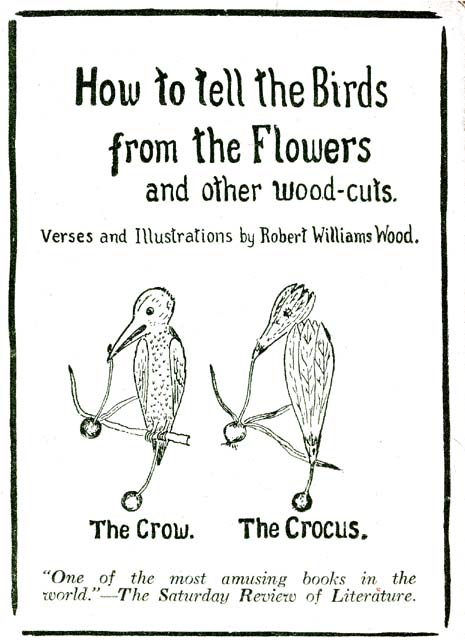
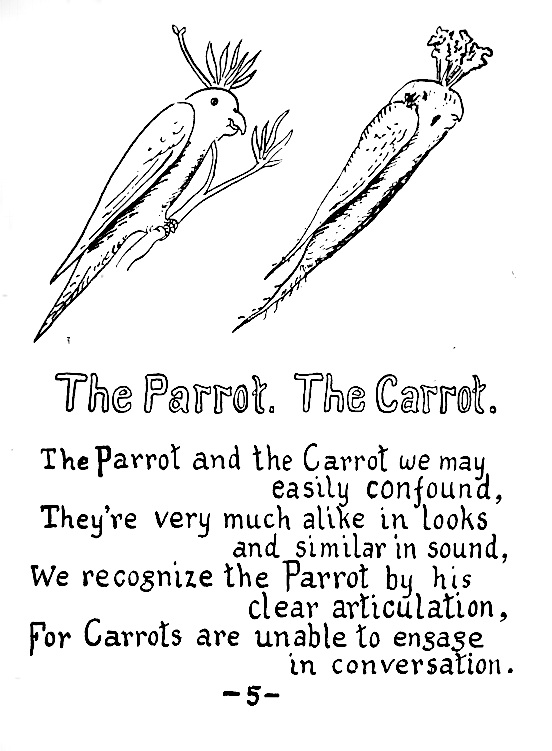
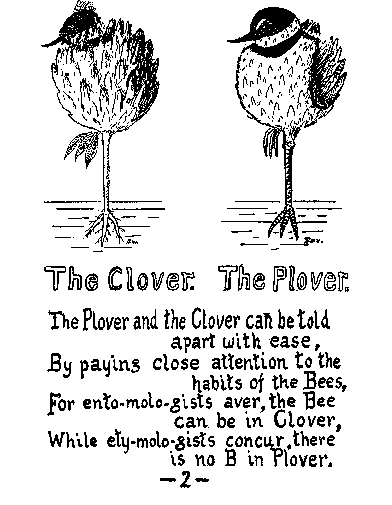
I think you get the gist. You may read the book in its entirety here. Thanks to Mara Rockliff for the link.

Los Angeles-based animator Sascha Ciezata reimagines Joseph Conrad’s 'Heart of Darkness' as a partly-animated serialized graphic novel on Instagram.
Los Angeles-based animator Sascha Ciezata reimagines Joseph Conrad’s 'Heart of Darkness' as a mixed-media serialized animated short on Instagram.

By: Alice,
on 6/22/2014
Blog:
OUPblog
(
Login to Add to MyJacketFlap)
JacketFlap tags:
grimes,
Joseph Conrad,
*Featured,
Psychology & Neuroscience,
bilingual brain,
arturo,
draehernandez,
Arturo Hernandz,
language and experience,
language learners,
learning a second language,
speaking in a second language,
thinking in a second language,
William Grimes,
writing in a second language,
schrauf,
marciano,
Books,
Language,
Add a tag
By Arturo Hernandez
Everyday I get asked why second language learning is so hard and what can be done to make it easier. One day a student came up to me after class and asked me how his mother could learn to speak English better. She did not seem to be able to breakthrough and start speaking. Perhaps you or someone you know has found learning another language difficult.
So why is it so hard?
There are a lot of explanations. Some have to do with biology and the closing of a sensitive period for language. Others have to do with how hard grammar is. People still take English classes in US high schools up to senior year. If a language were easy, then native speakers of a language would not have to continue studying it to the dawn of adulthood.
But what if we took a different approach. Rather than ask what makes learning a second language so hard, let’s ask what makes it easier.

One group of successful language learners includes those who write in a second language. For example, Joseph Conrad, born Józef Teodor Konrad Korzeniowski, wrote Heart of Darkness in English, a language he spoke with a very strong accent. He was of Polish origin and considered himself to be of Polish origin his entire life. Despite his heavy accent, he is regarded by many as one of the greatest English writers. Interestingly, English was his third language. Before moving to England, he lived in France and was known to have a very good accent in his second language. Hence, success came to Conrad in a language he spoke less than perfectly.
The use of English as a literary language has gained popularity in recent years. William Grimes, in a New York Times piece, describes a new breed of writers that are embracing a second language in literary spirit. Grimes describes the prototypical story that captures the essence of language learning, The Other Language from Francesca Marciano. It’s the story of a teenager who falls in love with the English language tugged by her fascination with an English-speaking boy. Interestingly, it turns out there is a whole host of writers who do so in their second language.
Grimes also considers the effects that writing in a second language has on the authors themselves. Some writers find that as time passes in the host country they begin to take on a new persona, a new identity. Their native land grows more and more distant in time and they begin to feel less like the person they were when they initially immigrated. Ms. Marciano feels that English allows her to explore parts of her that she did not know existed. Others feel liberated by the voice they discover in another language.
The literary phenomenon that writers describe is one that has been discussed at length by Robert Schrauf of Penn State University as a form of state-dependent learning. In one classic study of state-dependent learning, a group of participants was asked to learn a set of words below or above water and then tested either above or below water. Interestingly, memory was better when the location of the learning matched the testing, even when that was underwater, a particularly uncomfortable situation relative to above water. Similar explanations can be used to describe how emotional states can lead to retrieval of memories that are seemingly unrelated. For example, anger at a driver who cuts you off might lead to memories of the last time you had a fight with a loved one.
Schrauf reviews evidence that is consistent with this hypothesis. For example, choosing the same word in a first or second language will lead people to remember events at different times in their lives. Words in the first language lead to remembering things earlier in life whereas viewing a translation in a second language leads to memories that occurred later in life.
The reports of writers and the research done by Robert Schrauf and his colleagues help point to a key aspect that might help people learn their second language. Every time someone learns a new language they begin to associate this language with a set of new experiences that are partially disconnected from those earlier in life. For many this experience is very disconcerting. They may no longer feel like themselves. Where they were once fluent and all knowing, now they are like novices who are trying desperately to find their bearings. For others like Yoko Tawada, a Japanese native who now lives in Berlin and writes in German, it is the very act of being disconnected that leads to creativity.
Interestingly, the use of two languages has also served as a vehicle for psychotherapists. Patients that undergo traumatic experiences often report the ability to discuss them in a second language. Avoidance of the native language helps to create a distance from the emotional content experienced in the first language.
The case of those who write in their second language as well as those in therapy suggests that our identity may play a key role in the ability to learn a second language. As we get older new experiences begin to incorporate themselves into our conscious memory. Learning a second language as an adult may serve to make the differences between distinct periods in our lives much more salient. Thus, the report of writers and the science of autobiographical memory may hold the key to successful language learning. It may involve a form of personal transformation. For those that are unsuccessful it may involve an inability to let go of their old selves. However, for those who embrace their new identity it can be liberating.
It was precisely this point that I raised with the student in my class who sought advice for his mother. I explained that learning a second language will often involve letting go of our identities in order to embrace something new. But how do you get someone to let go of himself or herself? One way to achieve this is to start keeping a diary in an unfamiliar language. It is probable that writing may not only lead a person to develop better language skills but also carry other deeper consequences. Writing in a non-native language may lead someone to develop a new identity.
Arturo Hernandez is currently Professor of Psychology and Director of the Developmental Cognitive Neuroscience graduate program at the University of Houston. He is the author of The Bilingual Brain. His major research interest is in the neural underpinnings of bilingual language processing and second language acquisition in children and adults. He has used a variety of neuroimaging methods as well as behavioral techniques to investigate these phenomena which have been published in a number of peer reviewed journal articles. His research is currently funded by a grant from the National Institutes of Child Health and Human Development. You can follow him on Twitter @DrAEHernandez. Read his previous blog posts.
Subscribe to the OUPblog via email or RSS.
Subscribe to only brain sciences articles on the OUPblog via email or RSS.
Image credit: Young female student with friends on break at cafe. © LuckyBusiness via iStockphoto.
The post Does learning a second language lead to a new identity? appeared first on OUPblog.

 The great novelist Philip Roth turned 80 years old today. To celebrate his birthday, we’ve linked to a long list of free eBooks that inspired his long career as a novelist–follow the links below to download for your Kindle, Nook, iPad or other popular reader.
The great novelist Philip Roth turned 80 years old today. To celebrate his birthday, we’ve linked to a long list of free eBooks that inspired his long career as a novelist–follow the links below to download for your Kindle, Nook, iPad or other popular reader.
The New Yorker has more details: “Roth told Les inRocks that when he turned seventy-four he reread his favorite authors—Dostoyevsky, Conrad, Turgenev, Hemingway.”
You can also explore more free eBooks at Project Gutenberg: our 50 Free eBooks To Be Thankful For list, our Free Books for Halloween collection, our Free Edgar Allan Poe books collection, our Downton Abbey poetry reading list, our Free Books That Inspired David Foster Wallace list and our Free Books Neil deGrasse Tyson Thinks Everybody Should Read collection.
continued…
New Career Opportunities Daily: The best jobs in media.

By: Alice,
on 2/26/2013
Blog:
OUPblog
(
Login to Add to MyJacketFlap)
JacketFlap tags:
Literature,
classic,
joyce,
William Carlos Williams,
OWC,
modernism,
Tom Stoppard,
henry james,
Oxford World's Classics,
Gertrude Stein,
Robert Lowell,
ezra pound,
Ernest Hemingway,
first world war,
Joseph Conrad,
Humanities,
Jean Rhys,
Theodore Dreiser,
Benedict Cumberbatch,
*Featured,
Stephen Crane,
TV & Film,
Susanna White,
Arts & Leisure,
e. e. cummings,
Ford Madox Ford,
Good Soldier,
Max Saunders,
Parade’s End,
A Dual Life,
British novel,
Christopher Tietjens,
D. H. Lawrence,
Rebecca Hall,
Stella Bowen,
Valentine Wannop,
Wyndham Lewis,
Add a tag

By Max Saunders
One definition of a classic book is a work which inspires repeated metamorphoses. Romeo and Juliet, Gulliver’s Travels, Frankenstein, Dracula, The Great Gatsby don’t just wait in their original forms to be watched or read, but continually migrate from one medium to another: painting, opera, melodrama, dramatization, film, comic-strip. New technologies inspire further reincarnations. Sometimes it’s a matter of transferring a version from one medium to another — audio recordings to digital files, say. More often, different technologies and different markets encourage new realisations: Hitchcock’s Psycho re-shot in colour; French or German films remade for American audiences; widescreen or 3D remakes of classic movies or stories.
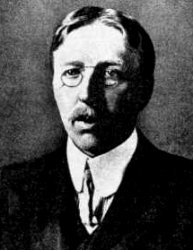 Cinema is notoriously hungry for adaptations of literary works. The adaptation that’s been preoccupying me lately is the BBC/HBO version of Parade’s End, the series of four novels about the Edwardian era and the First World War, written by Ford Madox Ford. Ford was British, but an unusually cosmopolitan and bohemian kind of Brit. His father was a German émigré, a musicologist who ended up as music critic for the London Times. His mother was an artist, the daughter of the Pre-Raphaelite painter Ford Madox Brown. Ford was educated trilingually, in French and German as well as English. When he was introduced to Joseph Conrad at the turn of the century, they decided to collaborate on a novel, and went on over a decade to produce three collaborative books. He also got to know Henry James and Stephen Crane at this time — the two Americans were also living nearby, on the Southeast coast of England. Americans were to prove increasingly important in Ford’s life. He moved to London in 1907, and soon set up the literary magazine that helped define pre-war modernism: the English Review. He had a gift for discovering new talent, and was soon publishing D. H. Lawrence and Wyndham Lewis alongside James and Conrad. But it was Ezra Pound, who he also met and published at this time, who was to become his most important literary friend after Conrad.
Cinema is notoriously hungry for adaptations of literary works. The adaptation that’s been preoccupying me lately is the BBC/HBO version of Parade’s End, the series of four novels about the Edwardian era and the First World War, written by Ford Madox Ford. Ford was British, but an unusually cosmopolitan and bohemian kind of Brit. His father was a German émigré, a musicologist who ended up as music critic for the London Times. His mother was an artist, the daughter of the Pre-Raphaelite painter Ford Madox Brown. Ford was educated trilingually, in French and German as well as English. When he was introduced to Joseph Conrad at the turn of the century, they decided to collaborate on a novel, and went on over a decade to produce three collaborative books. He also got to know Henry James and Stephen Crane at this time — the two Americans were also living nearby, on the Southeast coast of England. Americans were to prove increasingly important in Ford’s life. He moved to London in 1907, and soon set up the literary magazine that helped define pre-war modernism: the English Review. He had a gift for discovering new talent, and was soon publishing D. H. Lawrence and Wyndham Lewis alongside James and Conrad. But it was Ezra Pound, who he also met and published at this time, who was to become his most important literary friend after Conrad.
Ford served in the First World War, getting injured and suffering from shell shock in the Battle of the Somme. He moved to France after the war, where he soon joined forces with Pound again, to form another influential modernist magazine, the transatlantic review, which published Joyce, Gertrude Stein, and Jean Rhys. Ford took on another young American, Ernest Hemingway, as his sub-editor. Ford held regular soirees, either in a working class dance-hall with a bar that he’d commandeered, or in the studio he lived in with his partner, the Australian painter Stella Bowen. He found himself at the centre of the (largely American) expatriate artist community in the Paris of the 20s. And it was there, and in Provence in the winters, and partly in New York, that he wrote the four novels of Parade’s End, that made him a celebrity in the US. He spent an increasing amount of time in the US through the 20s and 30s, based on Fifth Avenue in New York, becoming a writer in residence in the small liberal arts Olivet College in Michigan, spending time with writer-friends like Theodore Dreiser and William Carlos Williams, and among the younger generation, Robert Lowell and e. e. cummings.
Parade’s End (1924-28) has been dramatized for TV by Sir Tom Stoppard. It has to be one of the most challenging books to film; but Stoppard has the theatrical ingenuity, and experience, to bring it off. It’s a classic work of Modernism: with a non-linear time-scheme that can jump around in disconcerting ways; dense experimental writing that plays with styles and techniques. Though it includes some of the most brilliant conversations in the British novel, and its characters have a strong dramatic presence, much of it is inherently un-dramatic and, you might have thought, unfilmable: long interior monologues, descriptions of what characters see and feel; and — perhaps hardest of all to convey in drama — moments when they don’t say what they feel, or do what we might expect of them. Imagine T. S. Eliot’s ‘The Waste Land’, populated by Chekhovian characters, but set on the Western Front.
I’ve worked on Ford for some years, yet still find him engaging, tantalising, often incomprehensibly rewarding, so I was watching Parade’s End with fascination. [Warning: Spoilers ahead.]
Click here to view the embedded video.
Stoppard and the director, Susanna White, have done an extraordinary job in transforming this rich and complex text into a dramatic line that is at once lucid and moving. Sometimes where Ford just mentions an event in passing, the adaptation dramatizes the scene for us. The protagonist is Christopher Tietjens, a man of high-Tory principle — a paradoxical mix of extreme formality and unconventional intelligence – is played outstandingly by Benedict Cumberbatch, with a rare gift to convey thought behind Tietjens’ taciturn exterior. In the novel’s backstory, Christopher has been seduced in a railway carriage by Sylvia, who thinks she’s pregnant by another man. The TV version adds a conversation as they meet in the train; then cuts rapidly to a sex scene. It’s more than just a hook for viewers unconcerned about textual fidelity, though. What it establishes is what Ford only hints at through the novel, and what would be missed without Tietjen’s brooding thoughts about Sylvia: that her outrageousness turns him on as much as it torments him. In another example, where the novelist can describe the gossip circulating like wildfire in this select upper-class social world, the dramatist needs to give it a location; so Stoppard invents a scene at an Eton cricket match for several of the characters to meet, and insult Valentine Wannop, while she and Tietjens are trying not to have the affair that everyone assumes they are already having. Valentine is an ardent suffragette. In the novel, she and Tietjens argue about women and politics and education. Stoppard introduces a real historical event from the period — a Suffragette slashing Velasquez’s ‘Rokeby Venus’ in the National Gallery — as a way of saying it visually; and then complicating it beautifully with another intensely visual interpolated moment. In the book Ford has Valentine unconcsciously rearranging the cushions on her sofa as she waits to see Tietjens the evening before he’s posted back to the war. When she becomes aware that she’s fiddling with the cushions because she’s anticipating a love-scene with him, the adaptation disconcertingly places Valentine nude on her sofa in the same position as the ‘Rokeby Venus’ — in a flash both sexualizing her politics and politicizing her sexuality.
Such changes cause a double-take in viewers who know the novels. But they’re never gratuitous, and always respond to something genuine in the writing.
Perhaps the most striking transformation comes during one of the most amazing moments in the second volume, No More Parades. Tietjens is back in France, stationed at a Base Camp in Rouen, struggling against the military bureaucracy to get drafts of troops ready to be sent to the Front Line. Sylvia, who can’t help loving Tietjens though he drives her mad, has somehow managed to get across the Channel and pursue him to his Regiment. She has been unfaithful, and he is determined not to sleep with her; but because his principles won’t let a man divorce a woman, he feels obliged to share her hotel room so as not to humiliate her publicly. She is determined to seduce him once more; but has been flirting with other officers in the hotel, two of whom also end up in their bedroom in a drunken brawl. It’s an extraordinary moment of frustration, hysteria, terror (there has been a bombardment that evening), confusion, and farce. In the book we sense Sylvia’s seductive power, and that Tietjens isn’t immune to it, even though by then in love with Valentine. He resists. But in the film version, they kiss passionately before being interrupted.
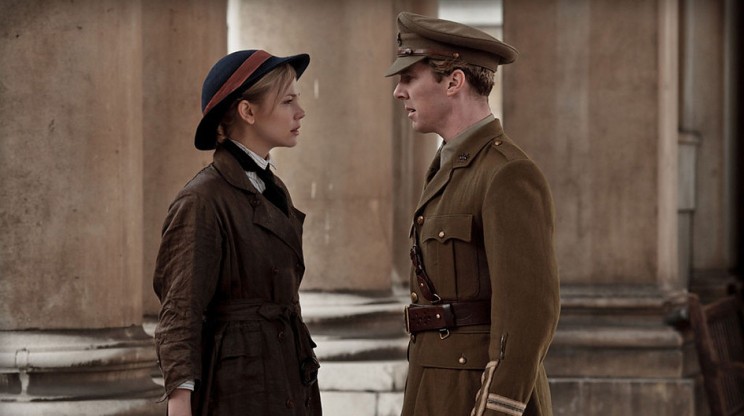
Valentine and Christopher. Adelaide Clemens and Benedict Cumberbatch in Parade’s End. (c) BBC/HBO.
The scene may have been changed to emphasize the power she still has over Tietjens: as if, paradoxically, he needs to be seen to succumb for a moment to make his resistance to her the more heroic. The change that’s going to exercise enthusiasts of the novels, though, is the way three of the five episodes were devoted to the first novel, Some Do Not…; and roughly one each to the second and third; with very little of the fourth volume, Last Post, being included at all. The third volume, A Man Could Stand Up — ends where the adaptation does, with Christopher and Valentine finally being united on Armistice night, a suitably dramatic and symbolic as well as romantic climax. Last Post is set in the 1920s and deals with post-war reconstruction. One can see why it would have been the hardest to film: much of it is interior monologue, and though Tietjens is often the subject of it he is absent for most of the book. Some crucial scenes from the action of the earlier books is only supplied as characters remember them in Last Post, such as when Syliva turns up after the Armistice night party lying to Christopher and Valentine that she has cancer in an attempt to frustrate their union. Stoppard incorporates this into the last episode, but he writes new dialogue for it to give it a kind of closure the novels studiedly resist. Valentine challenges her as a liar, and from Tietjens’ reaction, Sylvia appears to recognize the reality of his love for her and gives her their blessing.
Rebecca Hall, playing Sylvia, has been so brilliantly and scathingly sarcastic all the way through that this change of heart — moving though it is — might seem out of character: even the character the film gives her, which is arguably more sympathetic than the one most readers find in the novel. Yet her reversal is in Last Post. But what triggers it there, much later on, is when she confronts Valentine but finds her pregnant. Even the genius of Tom Stoppard couldn’t make that happen before Valentine and Christopher have been able to make love. But there are two other factors, which he was able to shift from the post-war time of Last Post into the war’s endgame of the last episode. One is that Sylvia has focused her plotting on a new object. Refusing the role of the abandoned wife of Tietjens, she has now set her sights on General Campion, and begun scheming to get him made Viceroy of India. The other is that she feels she has already dealt Tietjens a devastating blow, in getting the ‘Great Tree’ at his ancestral stately home of Groby cut down. In the book she does this after the war by encouraging the American who’s leasing it to get it felled. In the film she’s done it before the Armistice; she’s at Groby; Tietjens visits there; has a Stoppard scene with Sylvia arranged in her bed like a Pre-Raphaelite vision in a last attempt to re-seduce him, which fails partly because of his anger over the tree. In the books the Great Tree represents the Tietjens family, continuity, even history itself. Ford writes a sentence about how the villagers “would ask permission to hang rags and things from the boughs,” but Stoppard and White make that image of the tree, all decorated with trinkets and charms, a much more prominent motif, returning to it throughout the series, and turning it into a symbol of superstition and magic. But then Stoppard characteristically plays on the motif, and has Christopher take a couple of blocks of wood from the felled tree back to London. One he gives to his brother, in a wonderfully tangible and taciturn gesture of renouncing the whole estate and the history it stands for. The other he uses in his flat, throwing whisky over it in the fireplace to light a fire to keep himself and Valentine warm. That gesture shows how it isn’t just Sylvia who is saying ‘Goodbye to All That’, but all the major characters are anticipating the life that, though the series doesn’t show it, Ford presents in the beautifully elegiac Last Post.
Max Saunders is author of Ford Madox Ford: A Dual Life (OUP, 1996/2012), and editor of Some Do Not . . ., the first volume of Ford’s Parade’s End (Manchester: Carcanet, 2010) and Ford’s The Good Soldier (Oxford: OUP, 2012). He was interviewed by Alan Yentob for the Culture Show’s ‘Who on Earth was Ford Madox Ford’ (BBC 2; 1 September 2012), and his blog on Ford’s life and work can be read on the OUPblog and New Statesman.
For over 100 years Oxford World’s Classics has made available the broadest spectrum of literature from around the globe. Each affordable volume reflects Oxford’s commitment to scholarship, providing the most accurate text plus a wealth of other valuable features, including expert introductions by leading authorities, voluminous notes to clarify the text, up-to-date bibliographies for further study, and much more. You can follow Oxford World’s Classics on Twitter and Facebook.
Subscribe to the OUPblog via email or RSS.
Subscribe to only literature articles on the OUPblog via email or RSS.
Image credits: (1) Portrait of Ford Madox Ford (Source: Wikimedia Commons); (2) Still from BBC2 adaption of Parade’s End. (Source: bbc.co.uk).
The post Ford Madox Ford and unfilmable Modernism appeared first on OUPblog.

I admit it: I have trouble retaining the details of books. Most texts eventually get relegated to a dark corner of my mind, slowly accumulating dust until they're barely visible at all. The only thing I can remember about DeLillo's White Noise is that the narrator's wife is named Babette, The Corrections by Jonathan Franzen [...]
“We penetrated deeper and deeper into the heart of darkness…”

Joseph Conrad’s famous tale concerns an expedition up the Congo River. The mission: to repatriate a company agent. And with each bend in that jungle river, the protagonist’s belief system proves increasingly unreliable.
The Heart of Darkness…the perfect metaphor for the hero’s journey.
And the writer’s.
I don’t know about you, but I begin Page One with no idea how I’ll feel when the ordeal is over.
I don’t write to explain—I write to find out.
The narrator, Marlowe, is dispatched upriver to investigate a rogue ivory trader named Kurtz.
 And who is this mysterious Kurtz? We don’t learn much about him. That’s okay because Kurtz is only the goal.
And who is this mysterious Kurtz? We don’t learn much about him. That’s okay because Kurtz is only the goal.
Only the goal?
The goal sets the quest in motion. The goal is the hero’s excuse for getting out of bed in the morning. But the quest is…
The hero’s journey to the truth about himself.
Up the Congo, Marlowe finds “truth stripped of its cloak of time.” Losing his cultural and moral coordinates, Marlowe must…
“meet that truth with his own true self—with his own inborn strength. Principles won’t do.”
Up the Congo, the narrator’s conventional scruples are exposed as mere “acquisitions”. He likens his principles to…“clothes, pretty rags—rags that would fly off at the first good shake.”
Marlowe’s precious belief systems are…
“Incidents of the surface, the reality—the reality, I tell you—fades. The inner truth is hidden—luckily, luckily.”
Lucky, yes, because the underlying reality is shocking.
“We are accustomed to look upon the shackled form of a conquered monster [European society], but there—the

By: Maryann Yin,
on 7/11/2011
Blog:
Galley Cat (Mediabistro)
(
Login to Add to MyJacketFlap)
JacketFlap tags:
Authors,
discussion,
thriller,
ThrillerFest,
panel,
Joseph Finder,
Joseph Conrad,
exciting,
David Liss,
Andrew Pyper,
smart,
Andrew Gross,
Dennis Lehane,
Matt Richtel,
Kathleen George,
Linwood Barclay,
William Landay,
Add a tag
 A ThrillerFest panel last week tackled this question: “Can a thriller be both exciting and smart?” Participants included authors Linwood Barclay, Joseph Finder, Kathleen George, Andrew Gross, Andrew Pyper and Matt Richtel. David Liss moderated the panel.
A ThrillerFest panel last week tackled this question: “Can a thriller be both exciting and smart?” Participants included authors Linwood Barclay, Joseph Finder, Kathleen George, Andrew Gross, Andrew Pyper and Matt Richtel. David Liss moderated the panel.
During the discussion, the participants picked Dennis LeHane‘s Shutter Island, Joseph Conrad‘s Heart of Darkness, and William Landay‘s upcoming Defending Jacob as their favorite smart thrillers.
Below, we’ve included five tips for writing smart thrillers from the discussion.
continued…
New Career Opportunities Daily: The best jobs in media.

By: Rebecca,
on 4/26/2010
Blog:
OUPblog
(
Login to Add to MyJacketFlap)
JacketFlap tags:
History,
Literature,
Current Events,
Mark Twain,
A-Featured,
Prose,
finn,
twain,
Huckleberry Finn,
Kenzaburo Oe,
Joseph Conrad,
World Literature,
Shelley Fisher Fishkin,
twain’s,
twain”,
huckleberry,
Add a tag
Shelley Fisher Fishkin, Professor of English and Director of American Studies at Stanford is editor of the 29-volume Oxford Mark Twain, and of The Mark Twain Anthology: Great Writers on His Life and Work (The Library of America), on which the comments that follow are based. She is also the author of From Fact to Fiction: Journalism and imaginative Writing in America, Was Huck Black? Mark Twain and African American Voices, Lighting Out for the Territory: Reflections on Mark Twain and American Culture, and A Historical Guide to Mark Twain. We asked Fishkin to contribute to the blog in honor of the centennial of Twain’s death.
Ernest Hemingway said in 1935 that “All modern American literature comes from one book by Mark Twain called Huckleberry Finn.” But these days, as scholars increasingly focus on transnational dimensions of American culture, perhaps it’s time to look at Twain’s impact on writing outside of America, as well. The fact that this year marks the centennial of Twain’s death, the 175th anniversary of his birth, and the 125th anniversary of the U.S. publication of his most celebrated book makes it a perfect time to widen our angle of vision.
If we set out to look for an American author most likely to achieve a world readership, we would be hard-pressed to find a less promising candidate than Mark Twain at the start of his career. The dialect and slang that filled the title story of first book, The Celebrated Jumping Frog of Calaveras County and Other Sketches, struck some early foreign readers as impenetrable. And if they found the dialect and slang of Twain’s first book hard to understand, the insults he hurled at them in Innocents Abroad were, as one German writer put it, “unforgivable.” But Twain broke out of the mold with such original freshness that many Europeans who justly could have been offended were intrigued instead. Indeed, I’ve determined that the first book published anywhere on Twain was published

By: Rebecca,
on 6/30/2009
Blog:
OUPblog
(
Login to Add to MyJacketFlap)
JacketFlap tags:
A-Featured,
1950s,
Media,
Elvis,
Jackson,
1960s,
1980s,
John Lennon,
Michael Jackson,
Lennon,
Elvis Presley,
Joseph,
Farrah,
Michael,
Farrah Fawcett,
Joseph Conrad,
Presley,
Fawcett,
Conrad,
Music,
Current Events,
American History,
John,
Add a tag
Elvin Lim is Assistant Professor of Government at Wesleyan University and author of The Anti-intellectual Presidency, which draws on interviews with more than 40 presidential speechwriters to investigate this relentless qualitative decline, over the course of 200 years, in our presidents’ ability to communicate with the public. He also blogs at www.elvinlim.com. In the article below he reflects on nostalgia for the 80’s. See his previous OUPblogs here.
than 40 presidential speechwriters to investigate this relentless qualitative decline, over the course of 200 years, in our presidents’ ability to communicate with the public. He also blogs at www.elvinlim.com. In the article below he reflects on nostalgia for the 80’s. See his previous OUPblogs here.
Journalists are not usually in the habit of looking back. They are charged to deliver “breaking news” to us. Novelty is the coinage of the newsroom, not history. Yet this week, the media’s preponderant coverage of the life and death of Michael Jackson has been stridently nostalgic. It reveals a culture needing and ready to sing an ode to the 1980s.
We cannot turn back time, but we can mark its passing. Up till last week, popular culture hadn’t had the chance to address the passing of an 80s superstar and with that, the 1980s. We were given occasion to mourn and contemplate the passing of the 1950s with Elvis Presley’s untimely death, and the passing of the 1960s with John Lennon’s death. So we have sung an ode to the post-war consensus, as we have sung an ode to the cultural revolution.
But enough of the 80s has remained with us - MTV, Nintendo, Reaganomics - not defunct but writhing for relevance, that we have not dared sing its eulogy. Michael Jackson’s and Farrah Fawcett’s death has served us a dramatic notice that it may be time.
After all, it is unlikely that we will see another Michael Jackson. In our era where songs are downloaded one at a time, no one is likely to sell a 100 million records (of “Thriller” or any other album) again. The 80s are over, but it has taken us three decades to find a moment to collectively mark and mourn its passage.
Tragic deaths are compelling not only for human interest reasons, but for the decisive statement about our mortality they make. For if even iconic characters who once defined their age can be so suddenly ejected from the remorseless flow of history, then there is surely no stopping the march of time.
It is no surprise that Michael Jackson is more beloved posthumously than he was all of this decade. Elvis Presley too, had become more and more of a has-been as the 60s progressed. Time is never forgiving - our only feeble antidote is nostalgia. So wrote Joseph Conrad, “Only a moment; a moment of strength, of romance, of glamor–of youth! … A flick of sunshine upon a strange shore, the time to remember, the time for a sigh, and–good-bye!–Night–Good-bye…!”
If the 1980s and whatever the decade repesented are indeed over, then businessmen, journalists, and especially politicians - take note! Nostalgia can only occur when the past has been rendered past.

 In my current job I’ve become somewhat fascinated with what could easily be considered the key tool in a librarian’s toolbelt: Reader’s Advisory. Patron asks you to recommend a book based on a set of preferences and you knock it out of the park. That’s our job and we do it well. Booksellers do it too, don’t get me wrong, but we have the advantage of an extensive backlist of out-of-print titles at our fingertips. It’s taken a little while, but recently I noticed that a LOT of folks are getting in on the Reader’s Advisory game. Companies like Bookish, Zoobean, SelectReads, certainly, and now? An actual publishing company itself. The Penguin Hotline is pretty much what it sounds like: A publishing house doing RA. Says their site, “Tell us as much as you’d like about the reader you’re buying for this holiday season and our expert staffers will find you just the right books. You’ll get personalized recommendations from real Penguins! Every request is handled individually by one of our in-house editors, marketers, designers, salespeople, publicists, and more.” And they actually do. What all this says to me is that libraries need to double down on their RA skills. Take some tips from Multnomah County’s My Librarian site for starters. That idea is crazy good. We could all learn a thing or two from it.
In my current job I’ve become somewhat fascinated with what could easily be considered the key tool in a librarian’s toolbelt: Reader’s Advisory. Patron asks you to recommend a book based on a set of preferences and you knock it out of the park. That’s our job and we do it well. Booksellers do it too, don’t get me wrong, but we have the advantage of an extensive backlist of out-of-print titles at our fingertips. It’s taken a little while, but recently I noticed that a LOT of folks are getting in on the Reader’s Advisory game. Companies like Bookish, Zoobean, SelectReads, certainly, and now? An actual publishing company itself. The Penguin Hotline is pretty much what it sounds like: A publishing house doing RA. Says their site, “Tell us as much as you’d like about the reader you’re buying for this holiday season and our expert staffers will find you just the right books. You’ll get personalized recommendations from real Penguins! Every request is handled individually by one of our in-house editors, marketers, designers, salespeople, publicists, and more.” And they actually do. What all this says to me is that libraries need to double down on their RA skills. Take some tips from Multnomah County’s My Librarian site for starters. That idea is crazy good. We could all learn a thing or two from it.












 And who is this mysterious Kurtz? We don’t learn much about him. That’s okay because Kurtz is only the goal.
And who is this mysterious Kurtz? We don’t learn much about him. That’s okay because Kurtz is only the goal.  A
A 
Love the birds and flowers!
“One of the most amusing books in the world.” Now THERE’S a blurb! I think I need to add more birds and flowers to my book…
Will the awards be live-streamed this year? Thanks.
Thanks for the link to Monica’s article. Like most (if not all) of Monica’s writing, it was thoughtful and lovely and spot-on.
Also, the bird or flower photos – great! I’m trying to think of a way to weave this into a lesson…
So many great links, thank you! On an unrelated topic, I’ve noticed lately that when readers get to the last page of a picture book they frequently turn the page to see if there is more to be read. It seems rather anti-climactic to reach the end of a book and not realize it’s the end. Really ruins the punch line, so to speak. I would like the words THE END to come back in vogue for picture books, anyone else have thoughts on this?
But of course! I can’t find the link now (they may not have it up yet) but will keep you informed accordingly.